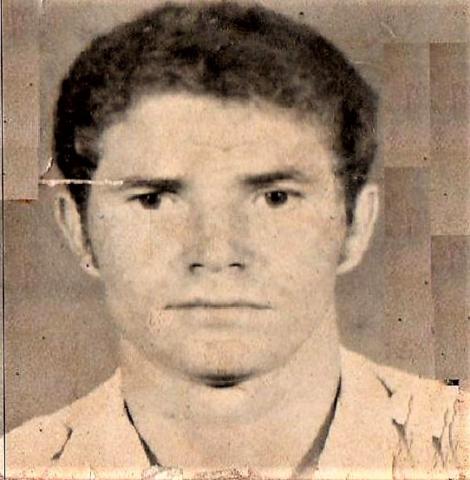
To date, his family has not received justice from the Algerian authorities and has been forced to address the issue to international mechanisms. Alkarama lodged a complaint on 9 May 2012 to the Human Rights Committee.
Mohamed Belamrania was 44 years old at the time of his death and was a farmer. He lived in El Kennar, near Jijel, and was the father of ten children: the oldest is 16 and the youngest is nearly three.
According to the testimonies of his relatives, about 30 soldiers of the 5th battalion of paratroopers of the National Popular Army (ANP) abducted Belamrania Mohammed at his home during the night of 13-14 July 1995 at about 9:30 p.m.
The paratroopers asked him to remove his SUV Peugeot 404 from the garage, and then two soldiers got into the vehicle with him and demanded that he drive towards their barracks, a former mall requisitioned by the army in the center of the village only 100 meters from the victim's home.
His wife turned to the officer in command and asked for the reasons for his arrest and why her husband was being taken. The paratroop officer replied that it was a simple interrogation in the barracks after which her husband would be promptly released.
However, all night the cries and entreaties of Mr. Belamrania were heard throughout the village and in the home of his family, giving a clear view of the torture that he suffered.
The next afternoon Mr. Belamrania was taken in a convoy of military vehicles with other civilians who had been detained in the shopping center to an unknown destination.
A few days later, several people arrested at the same time as the deceased and living in the same village were released. They informed his family that they were kept together until their release in the military barracks of El Milia.
The next day, his wife, accompanied by his eldest brother, went to the barracks of El Milia to inquire as to his fate and demand his release. The officer on duty told them that no one by that name was in custody and threatened to harm them if they did not cease their inquiries.
On 24 July 1995, eleven days after his arrest, the borther of the victim was informed by a relative that several corpses of people who had been summarily executed by the paratroopers of the 5th battalion stationed at El Milia barracks had been dumped on the side of the road in Tenfdour and that one of the bodies had light brown hair like his brother.
He arrived at the scene accompanied by the other members of his family and recognized his brother among other mutilated corpses that were on the side of the road. The victim had his hands tied behind his back with a wire and was riddled with bullets and bore evidence of torture. The other corpses discovered there also bore traces of torture and mutilation.
Belamrania Youssef went to the police station in El Milia where he informed the authroties of the discovery of the mutilated cadavers, among them his brother. After a long wait, the police brought the remains of the victims to the hospital morgue by local civil protection.
The brother also went to the court of El Milia to inform the prosecutor of the state, Mr. Latrèche Hacène, of the discovery of the murder victims and hoped to provoke a reaction of the judge. He was informed him that many witnesses were aware of the mass execution by the military paratroopers at the edge of the main road and called for an autopsy.
The prosecutor requested that the family members come to the hospital morgue again to formally identify the body in the presence of the police.
After the identification the police required 120,000 dinars from the family to claim the body as well as a written acknowledgment that he had been part of a terrorist group. Faced with a unanimous protest by the family and their refuse to pay the amount asked for by the police or sign the false testimony, the body was finally reclaimed.
Belamrania Mohamed was buried at the El Kennar cemetery without the autopsy requested by the family.
Despite the penal complaint lodged with the prosecutor and several appearances by the family, no investigation was ever launched to follow up on this murder.
In 2006, following the creation of the ordinance of reconciliation, the widow of Mr. Mohamed Belamrania requested compensation from the authorities, reminding them that her husband had been executed by soldiers in the line of duty and that she and her family were also victims of the "national tragedy."
The authorities suggested to her that she initiate proceedings for a declaration of disappearance that would allow her to be compensated, despite the fact that this is obviously not a case of enforced disappearance but one of an extrajudicial execution committed by the military.
A false statement of disappearance was created by the judicial police officer of the national gendarmerie of El Kennar and an investigation was launched by their services. The death was registered in the civil status records by order of the President of the court in 1995 at the request of the prosecutor of El Milia.
Although the Mr. Belamrania Mohamed was the victim of a crime committed by the army, its most senior military officials have refused to open an investigation to establish the circumstances of his death and also ignore the widespread nature of this practice.
The family of the victim has utilized every domestic legal avenue at their disposal. Despite all of their efforts, no serious inquiry has ever been opened and those responsible have yet to be brought to justice.
